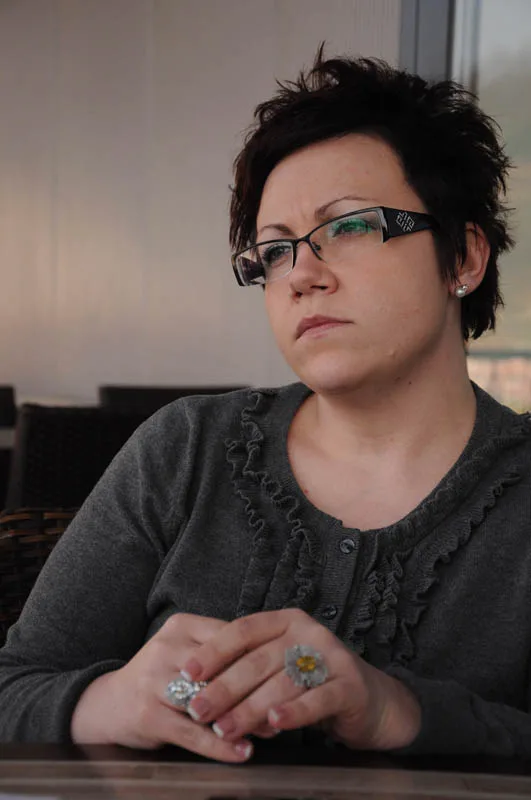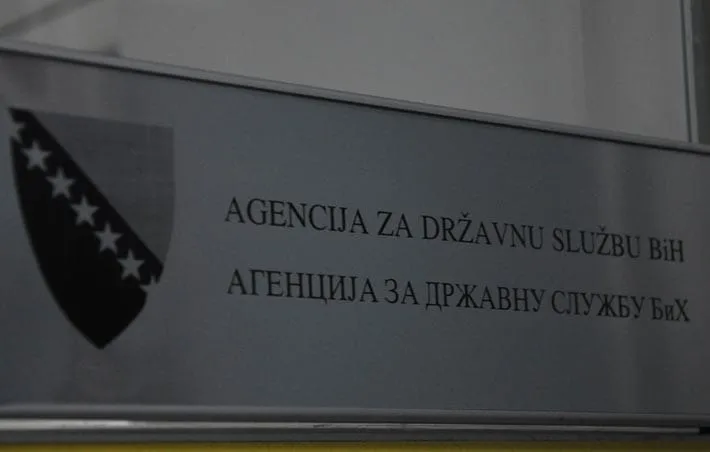Neven Akšamija, director of the BiH Agency for Civil Service (ADS), and his subordinates will tell you that they always do their jobs professionally and that they have never helped somebody get a job, either with theirs or other state agencies. Yet some hires into ADS have raised questions and sometimes filed lawsuits.
ADS officials certainly have the power to decide who gets prized civil service jobs. According to the Law on State Service, selection commissions are made up of five people. Two come from the agency looking to hire and three come from a list of experts that ADS compiles. Some 360 professionals are currently listed – including some ADS employees.
ADS, appoints the independent commission members and, with advice from the Agency director, the Council of Ministers determines fees for commission members. They then choose a chairman from among themselves and approve all procedural rules. They grade and rank candidates indivudally but only their group decisions about people are publicized. No agency, even ADS, can meddle in their work or question individual grades.
Don't want to miss our stories?
Sign up for our newsletter.
Don't want to miss our stories?
Sign up for our newsletter.

Director Akšamija and Kemal Bajramović , head of ADS’s Information Technologies (IT) Group, served as commission members last May when the agency was searching for a senior expert associate for processing and managing information — a position in Bajramović”s department. Four people took the written exam. The selection commission decided that the best among them was Aldijana Gušić — who had actually been working in the ADS IT department since Feb. 15, 2006.
Bajramović said the goal was not to hire someone they know — but someone who would do the job that needs to be done.
He explained that Gušić was brought into the agency in 2006 after passing a hiring procedure for civil service employees with secondary and associate degrees. Meanwhile, she got a college degree in 2009. At the time management had no position open for a civil servant, which requires a college degree but they wanted to keep her so they moved her into a position they did have and which he had power to hire for — the director’s executive assistant. Then, he said, workload increased and ADS needed a worker, so management signed a contract with Gušić for a year. From May 1, 2009, through June 30, 2011, she was on paper the director’s executive assistant, but she actually continued working in IT.
“We have nicely profited,” Akšamija said, “because we had an M.A. engineer for the salary of an assistant.”
In the meantime, on May 9, 2011, ADS announced it was searching for an IT expert.
“Once she had enough time of experience to be eligible to apply, we publicized an ad for her,”Akšamija said.

Photo by CIN
On June 29, 2011, Gušić took the second part of her professional examination before a commission that consisted of bosses and colleagues she had worked with for five years.
They found her the most qualified candidate.
In other words, the day after her contract ran out, she was still with ADS – as a civil servant with excellent job security. The job ad reads that the net salary for this position is 1,170 KM. This was at a time when an averages BiH salary was 813 KM. ADS also regularly pays all taxes and benefits for its employees which the majority of workers at other BiH employers cannot boast of.
The Civil Service is Hard to Get Into And Even Harder to Get Out Of
According to data the Center for Investigative Reporting in Sarajevo (CIN) collected, at least 267 civil servants in 33 state agencies had worked in those same state agencies before an ad was posted and without going through a civil service procedure in the past five years. Every time, selection commissions ruled that the candidates already working were the best qualified of all applicants. In comparison, over the past three years almost 15,000 candidates without previous experience in the jobs they were going for answered ads.
Sometimes they came close, but they didn’t snare the prize. Some applicants told CIN that they felt that competition from people already employed in the jobs they wanted was an obstacle that they could not overcome. They said you get civil service jobs only if you have “connections”.
The State Service’s Complaint Board has gotten complaints from the candidates about these “preferred candidates”, but in every case the board has tossed out charges that a grade cannot be objective if commission members giving it already know a candidate or work alongside him.
The Board has tossed off such complaints as so much sore-loser whining.
Akšamija says that some applicants may be disadvantaged competing with applicants who have experience. But, he adds, the law allows this competition. Law says that it will not be considered as discrimination if someone already works somewhere, or has knowledge or experience. “Because we select the most suitable ones. The law is set in this way,” Akšamija explained.
Four people in addition to Gušić were hired in a similar manner by the agency between 2004 and 2009. Two civil servants came in as trainees, than got short-term contracts, then were hired permanently following a call for applications for the job in which they had already worked.
The third employee was invited to work at ADS by managers who said they got to know him through hiring procedures for jobs in other institutions and through his frequent pleas for advice on hiring paperwork.
Akšamija admits openly to how people have found jobs in his agency because, he says, the best connections these people had as candidates was with knowledge of and willingness to do the job.
Prison sentence is no obstacle to being a civil servant
Bojan Golić also was a trainee with ADS in 2004. and his is an especially interesting hiring case because Golić, as acting director of the Investment and Development Bank of Republika Srpska (IRB RS), pleaded guilty in June 2010 to misconduct in office. He was sentenced to four months in prison.

This is his story.
Golić came to ADS after it had put out a job ad for a trainee. A year later, ADS opened up a vacancy for a civil servant. Golić applied, scored the best result and joined the service. By June 5, 2008, he changed positions twice in ADS–he was first hired as a senior expert associate for mediation, then a year later as a senior expert associate for application processing and testing. At the latter position he stayed until June 5, 2008 when he asked for a leave of absence.
“In 2008, I went to Banja Luka”, he said. “I had a decision on the unpaid leave signed by then director Jakob Finci…until the end of the term or break up of the contract.”
The RS appointed Golić first as a director of the IRB’s Share Fund in 2008, then a year later the IRB’s Supervisory Board appointed him acting director. A year afterward he was arrested for misconduct in office. Three months into his detention he pleaded guilty and was sentenced to four months in prison.
According to a plea agreement he signed with the RS Special Prosecutor”s Office, Golić admitted that in mid-July 2009 he published a public offering which IRB RS sent to the shareholders of the Banja Luka-based Medicinska Elektronika. Then he held a meeting of the IRBRS management that decided on the buyer of 35 percent of the company”s shares. With this Golić confirmed that he had voted and then he authorized the sale of 3.3 million shares of Medicinska Elektronika to Mile Radišić at the price of 0.0554 KM.
Four other people indicted in the matter, including the RS president”s best men Radišić, were later acquitted.
After he pleaded guilty and received his sentence, Golić wrote Akšamija asking for his old job back. In the beginning od December 2010 he was again a civil service employee with ADS’s Commission for Selection and Testing.
That is perfectly legal. When civil servants in non-management jobs are appointed to executive offices such as Golić’s bank position, the law allows them a leave. This lasts from the day of appointment to the new position until the end or interruption of their term. After that they may request to go back to the same or to a similar work post from which they took the leave of absence.
Golić could not get his original job with ADS back because 10 months before he was going to return, the agency had put out a job ad for senior expert associate with the Commission for Selection and Testing. Sanja Nurkić was chosen and she started working May 1, 2010.

Photo by CIN
With Golić back, director Akšamija moved Nurkić to another job calling it “the authoritative decision of the manager.” Golić took her job.
But he soon got a promotion.
Akšamija told CIN, “Our former employee got back to us asking for his legal rights. We returned him to this post. Since at the moment I had no need for a senior expert associate, but I needed a chief – and I had a man coming back from an executive position, we decided to promote him to the head of department according to the legal procedure.”
Golić was made head of the Group for Applications and Testing, a top ADS managerial position, entirely through internal hiring procedure.
Golić ‘s conviction was no obstacle to continued work and advancement because civil service bars only those sentenced to at least six months in prison, or under an ongoing investigation.
Deputy Minister Against the Agency’s Director
Fuad Kasumović, deputy BiH minister of finances and treasury, complained to the BiH Prosecutor’s Office last October and laid out his suspicions that ADS employees and members on Commission for the Selection of Civil Servants abused their official authority in the hiring of five people at his ministry in May 2011.
Kasumović wrote that it had been decided beforehand which candidates were to be accepted at the expense of other applicants treating the process as fair. He blamed Akšamija and commission members Anka Šešlija, Dženana Selimović, Tamara Čapelj, Azem Krajinić and Njegoš Pavlović.
Some 200 candidates applied for the job. ADS failed to notify 125 of them about the date for taking the written part of the required professional exam on Sept. 15, 2011. This is why those took the first part of the exam twenty days later.
Three days before the exam, Kasumović wrote a memo to Akšamija that he had gotten a tip that the job ad was rigged. He told him it was known that these people would get the jobs:, Tanja Minić, Manuela Stjepanović, Ana Drmić, Jasmina Putica and Mithad Čolaković. They worked at the Ministry from April 2010. The first year they were trainees and from May 1, 2011 all of them were promoted into experts associates. Those contracts were to expire 15 days after the end of testing for full-time employment. Kasumović asked that the selection commission be disbanded and hiring redone.

Photo by CIN
Akšamija confirmed that Kasumović talked with him. But he said ADS had no authority to disband and reappoint commissions.
Officials from the BiH Prosecutor’s Office did not want to comment on how far it has gotten in checking the deputy minister’s complaint.
Kasumović is not the only one who has asked judicial institutions to resolve this case.
Džana Sokolović was a candidate for one of the five posts and scored the highest on the written part of the professional exam. But in an interview she did not score high enough and so the job went to Manuela Stjepanović, one of the people on “the list“. Sokolović’s complaint was denied so she filed a lawsuit against the complaint Board in December 2011. She says she’s still waiting for verdict.
“It (the Court of BiH) can turn it down or remand it, and the Board can turn it down as unacceptable. But I will sue them again, for mental anguish, for missed salaries. I will not give up,” she said.
An oral test for the jobs was given Oct. 14, 2011. Four candidates Kasumović had predicted would be hired got jobs. Drmić, the fifth candidate, had failed the written part of the test, as had six other candidates for the same post. So far no one has been hired for that fifth vacancy.
























